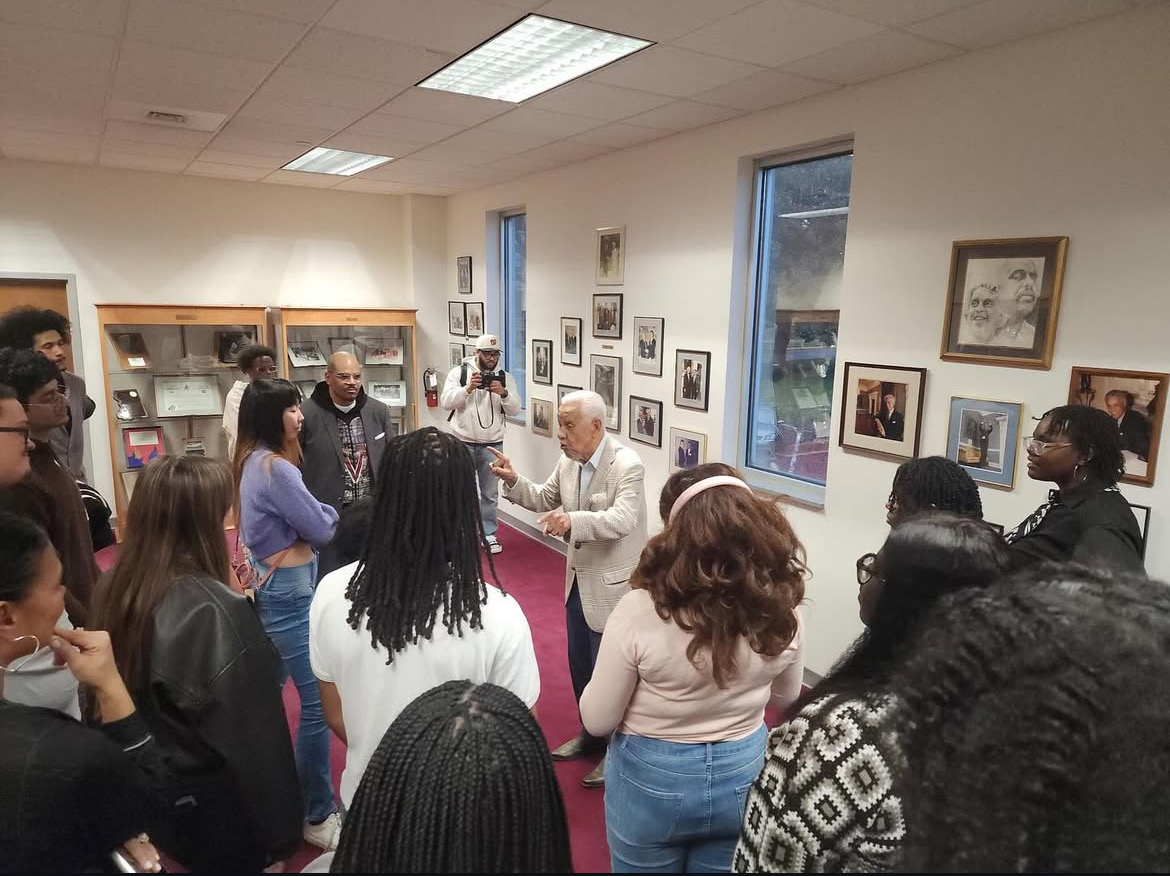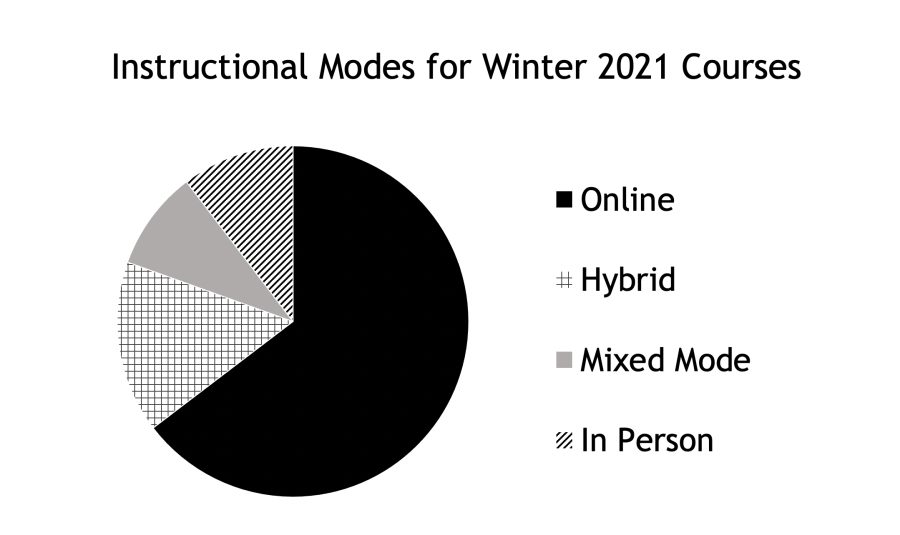The distribution of Carleton courses between online and in-person modes will remain roughly the same in the winter as it was during Fall Term, according to The Carletonian’s analysis of course listings on the Hub. During the pandemic, Carleton is offering courses in four different modes—online, face-to-face, hybrid and mixed mode. Hybrid courses have both online components and mandatory in-person components, while mixed mode courses have an in-person component for those on campus but can also be taken by off-campus students.
About 65% of courses will be entirely online this winter, compared to 60% during Fall Term. Of the remaining courses, roughly 16% will be hybrid, 9% will be mixed mode and 10% will be face-to-face. During Fall Term, those numbers were 17%, 12% and 11%, respectively. The relative lack of change suggests that most departments and professors are taking a similar approach to the fall.
Students studying remotely cannot enroll in hybrid and face-to-face courses, meaning that just over a quarter of Carleton’s offerings will be unavailable to students off campus. In an October 23 email, Dean of Students Carolyn Livingston announced that campus capacity would be capped at 1,615 students this winter, which means about 400 students will be studying remotely. A small fraction of that group will be studying abroad and thus not enrolled in Carleton classes. Livingston confirmed on October 31 that there would be enough space on campus to accommodate all students who requested to return for Winter Term.
A few departments have made revisions to course modes going into Winter Term. The introductory biology course Genes, Evolution, and Development was offered entirely online this fall, including the lab component. The instructors have opted to make it mixed mode this winter, allowing some in-person work while still remaining open to off-campus students, according to Department Chair Daniel Hernández.
Two foundational chemistry courses with a lab component—Principles of Chemistry I and II—were offered in the hybrid mode in the fall, meaning they could not be taken by off-campus students. This will change in the winter, when they will be offered as mixed mode. These courses are required for both the Chemistry major and the pre-medicine track, and they are frequently taken by Biology majors to fulfill a chemistry requirement.
“Even though Principles I and II are going to be taught mixed mode next term, we will expect students on campus to attend lab in person,” said Department Chair Daniela Kohen. “We are still deciding how we will accommodate those students that will be remote.”
“We are continuing to balance their needs with what is involved in learning chemistry,” she added.
For both Fall and Winter Terms, it is difficult to find a standard six-credit class that is entirely face-to-face. According to the Hub, out of nearly 300 six-credit courses offered this winter, only 13 will be face-to-face. Hub listings suggest that a small handful of professors have opted to teach their entire course load in this mode.
The face-to-face mode is largely dominated by offerings such as comps, labs and music workshops worth less than six credits. In particular, 14 departments list their comps as being face-to-face, accounting for 40% of courses in this mode. It is unclear whether being off campus would actually prevent a student from compsing in any of these departments.
The somewhat more popular hybrid mode has taken several different forms this term. Some professors have split their classes into two groups which meet in person on different days, followed by a whole-group meeting over Zoom. Other courses require students to use on-campus art spaces or labs, while also holding meetings online.
The Carletonian’s data does not include music lessons and zero-credit physical education classes, but it does include all other listed classes regardless of number of credits.













